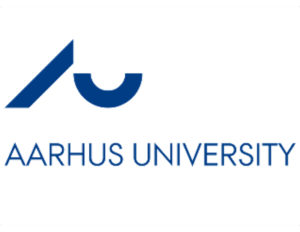The development of an abdominal ‘yes-no’ pathway for primary care patients with vague and non-specific abdominal symptoms (PhD)
Start Date May 2017
Code A4-Aff, PhD
Status Completed
Charles Helsper (Utrecht)
Earlier cancer diagnosis is a pivotal step to improve the prognosis, and there seems to be opportunity for improvement in abdominal cancers in Denmark, where 31% of all newly diagnosed cancers are abdominal cancers.
The majority (75-85%) of cancer patients initially present symptoms to their GP, but only half of them present alarm symptoms, while 20% present serious non-specific symptoms, and 30% present vague non-specific symptoms. Site-specific cancer patient pathways (CPPs) for alarm symptoms were implemented in Denmark in 2008/2009. In 2012, a new Danish CPP was implemented to target patients with serious non-specific symptoms (NSSC-CPP). Still, no pathway exists for patients with vague abdominal symptoms.
Funding
Louis-Hansen Foundation: 100,000 DKK = 11,859.65 GBP
Danish General Practice Fund: 100,000 DKK = 11,859.65 GBP
Danish Cancer Society: 1,070,000 DKK = 127,622.45 GBP
Rational and Early Diagnosis, Central Denmark Region: 163,000 DKK = 19,441.55 GBP
Committee of Multipractice Studies in General Practice: 40,431 DKK = 4,794.97 GBP
Aims & objectives
- To explore the frequency and timing of specific abdominal related investigations and CPPs in the year prior to a diagnosis of an abdominal cancer.
- To describe GPs´ involvement in the diagnosis, symptom interpretation and the diagnostic interval among abdominal cancer patients.
- To evaluate the feasibility of a newly developed abdominal `yes-no’ pathway for patients in primary care with vague, non-specific abdominal symptoms, who did not fulfil the criteria for a specific abdominal CPP, but in whom the GPs did not want to miss a cancer or another serious disease.
Methodology
This PhD project is composed of three parts.
Study 1 is a register-based national cohort study of first-time abdominal cancer (including gynaecological and urological cancer) patients, who are registered in the Danish Cancer Registry (DCR) with an abdominal cancer in the period from 1 January 2014 to 31 December 2018.
In study 2 we investigate a sub population from study 1 and use individual data for each patient, collected on the basis of medical records through a questionnaire send to the GP of each patient.
Study 3 consisted of both a developmental part and a feasibility part. The developmental part involved semi-structured group interviews with 16 medical experts from seven different relevant specialities. The clinical feasibility part was performed from 1 April to 30 September 2019, with a 6- month follow-up period. Afterwards the pathway was evaluated with a focus group meeting in February 2020. The abdominal ´yes-no´ pathway consisted of: 1) Medical and objective examination, 2) Selected blood samples and a Fecal Immunochemical test (FIT), and 3) Abdominal ultrasound (US) and transvaginal US (TVUS) (for women).
Outputs & impact
Overall, the project will provide new important knowledge of the clinical examinations conducted in the year prior to an abdominal cancer diagnosis, and the GPs’ symptom interpretation and referral practice for patients with abdominal cancer.
Further, this project will contribute with novel knowledge of the feasibility in providing direct access in primary care to a newly developed abdominal ‘yes-no’-pathway.
Next steps
Analysis from study 1 and 2 has completed, and the evaluation of the feasibility in study 3 is in progress.
Publications
- Holt Jessen N, Jensen H, Falborg AZ, Glerup H, Gronbaek H, Vedsted P. Abdominal investigations in the year preceding a diagnosis of abdominal cancer: a register-based cohort study in Denmark. Cancer Epidemiology, 2021, doi: 10.1016/j.canep.2021.101926
- Holt Jessen N, Jensen H, Helsper CW, Falborg AZ, Glerup H, Gronbaek H, Vedsted P. Cancer suspicion, referral to cancer patient pathway and primary care interval: a survey and register study exploring 10 different types of abdominal cancer. Family Practice, 2021, cmab025, doi: 10.1093/fampra/cmab025
- Holt Jessen N, Jensen H, Falborg AZ, Glerup H, Gronbaek H & Vedsted P. Contacts to general practice in the 12 months preceding a diagnosis of an abdominal cancer: a national register-based cohort study, Scandinavian Journal of Primary Health Care, 2022. doi: 10.1080/02813432.2022.2057054



